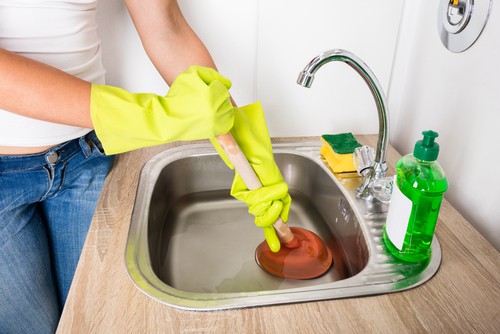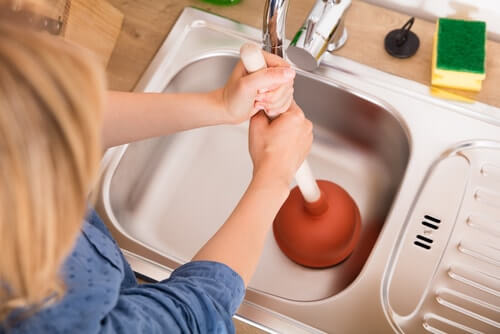Quick Solutions for Emergencies Until Support Arrives
Quick Solutions for Emergencies Until Support Arrives
Blog Article
How do you actually feel in regards to What to Do During a Plumbing Emergency?

Plumbing emergency situations can strike at any moment, causing stress and anxiety and prospective damages to your home. Whether it's a burst pipeline, a clogged drain, or a dripping tap, understanding how to manage the scenario up until a specialist plumbing gets here can save you from more problems. This write-up offers necessary emergency situation plumbing ideas to assist you minimize damage and restore control throughout a pipes situation.
Switch off the Supply Of Water
The primary step in any kind of pipes emergency situation is to shut down the supply of water. For local concerns, such as a leaking tap or commode, turn off the shutoff near the component. In the case of a significant leak or ruptured pipeline, situate your home's main water shut-off valve and transform it off immediately. Understanding the area of these valves beforehand can conserve beneficial time throughout an emergency situation.
Address Tiny Leakages with Momentary Repairs
Little leaks can rapidly end up being considerable troubles if left unattended. Make use of these short-term solutions up until professional assistance arrives:
While these solutions aren't long-term, they can assist lessen water loss and damages.
Unclog Drains Pipes Securely
A clogged up drainpipe can be a frustrating and messy issue. Here's exactly how to tackle it:
If these approaches do not work, avoid utilizing extreme pressure, as it might aggravate the obstruction.
Take Care Of Overflowing Toilets
An overruning commode can create prompt disorder. Right here's what you should do:
Turn off Your Hot Water Heater
In certain emergency situations, such as a ruptured pipe, it's smart to shut down your hot water heater. This stops getting too hot or damage to the device when water stops moving. Shut off the power supply to the hot water heater (electric or gas) and allow it cool down to stay clear of potential threats.
Temporarily Quit a Burst Pipe
A ruptured pipeline can result in substantial water damage in minutes. To minimize the problem:
Call a professional plumbing technician immediately to attend to the problem completely.
Handle Frozen Water Lines Carefully
In chillier climates, frozen pipes are an usual emergency. If you believe a frozen pipeline:
Protect against More Damages
Taking quick action to minimize damage can save you time and money over time. Below's just how:
. Have an Emergency Pipes Package
Prepare a fundamental plumbing emergency situation set to handle small concerns effectively. Your package must include:
Having these devices handy can make a considerable distinction in your capability to manage emergency situations.
Know When to Call an Expert.
While quick fixes can help briefly, certain pipes problems require immediate specialist interest. Call a plumber if:.
Without delay getting in touch with a professional ensures the problem is dealt with properly and prevents additional complications.
Final thought.
Pipes emergencies can be frustrating, but with the ideal knowledge and tools, you can take care of the situation efficiently up until aid gets here. By turning off the water system, resolving small leakages, and making use of temporary repairs, you can lessen damages and maintain your home safe. Bear in mind, these tips are short-term services; constantly seek advice from a qualified plumber to deal with the root cause of the problem. Prep work and fast thinking are your best allies in any plumbing emergency situation.
8 Helpful Tips for Managing Plumbing Emergencies at Home
If your plumbing system hasn’t failed once, wait for it because almost everyone has a story to tell. Sometimes, it could be simple emergencies such as a leaking pipe, a blocked cistern, or even a big burst pipe. In situations like this, you need to have some handy tips to save you some money and from possible damages.
Take care of minor issues early.
Sometimes, you could have avoided an emergency by taking proactive measures while it was still early. Some major plumbing emergencies can be a result of an ignored minor issue. We recommend that you have items like plumbing tapes and other related items. A plumbing tape can allow you to manage minor leaks before the plumber arrives.
Cut off the water supply.
This tip is essential in almost any type of leakage problem. For problems like minor leakages in the toilet or kitchen, turn off the supply that takes water to the affected pipes. If the leakage is a major pipe, you must shut off the supply valve to the entire building. This will help you avoid flooding your home and neighbors if you share a flat.
Know your plumbing system
Folks typically move into a new apartment without understanding the water supply around the building. This can prove disastrous if a water emergency arises and the plumber is far away. The previous tip will prove useless if you don’t practice this one. More importantly, know where your water shut-off valve is located – you’ll need that knowledge to prevent potential home floods.
Have some common handy tools
There are lots of plumbing emergencies that you can handle without hiring a plumber. That’s why you must keep some tools available always. Some tools that you can use to fix simple plumbing emergencies easily include plumbing tapes, screwdrivers, thread seal tapes, plungers, pliers, tape measures, and rubber gloves.
Insulate your pipes from cold
You’ll save yourself from many plumbing expenses if you protect your water pipes from the cold. This is because of the harmful effects that cold weather can have on your pipes. During winter, your pipes can burst from being overly expected to freezing temperatures. So, make sure insulators are there to keep the pipes working correctly.
Avoid practices that will clog your toilet.
Many people indulge in practices that can damage the plumbing system of the entire building. One of these is when they use their toilet to dispose-off garbage. They flush all kinds of things, such as paper towels, bandages, hairs, female sanitary products, etc., down the toilet. This will block your toilet in the long run, incurring unnecessary expenditures. Dump such waste in the trash instead.
Check your dials regularly.
Sometimes, there could be leakages in your home without noticing them in time. So, constantly monitor your water meter dial. If the dial is reading when there is nobody using water, this is an indicator that there is leaking. Check for leaks immediately. Call a plumber as soon as possible if you can’t find any.
https://www.constructionplacements.com/8-helpful-tips-for-managing-plumbing-emergencies-at-home/

Hopefully you enjoyed our section on Expert Tips for Managing a Plumbing Emergency Until Help Arrives. Thanks a ton for taking a few minutes to read our content. Those who enjoyed reading our post please do not forget to share it. We enjoy reading our article about Expert Tips for Emergency Plumbing Repairs.
Call Report this page